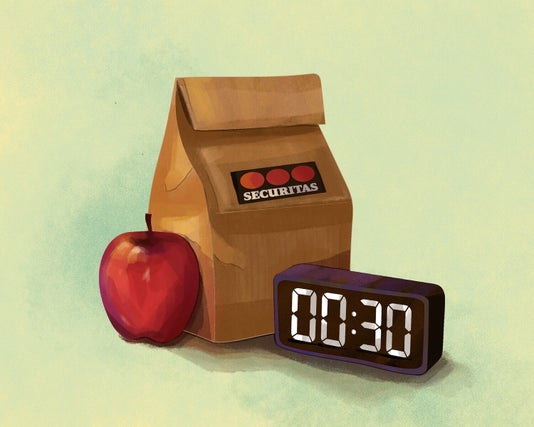
When we think of security personnel, we often envision them actively patrolling, monitoring cameras, or responding to incidents. But what happens during their break? Should security stay connected, even when they are off duty for a short time? The answer is a resounding yes. Maintaining communication, even during breaks, is critical for ensuring the safety of people, property, and the security team itself. In this blog post, we’ll explore why security should always stay on comms—even when taking a well-deserved break.
1. Emergencies Don’t Take Breaks
Security personnel are the first line of defense when emergencies arise. Whether it’s a medical emergency, a fire, or a break-in, the speed of response is often what makes the difference between a minor incident and a major disaster. Emergencies are unpredictable, and they don’t wait for scheduled breaks. If a security guard is off comms, even for a few minutes, critical information might not reach them in time.
By staying on communication devices like two-way radios, security personnel can still receive alerts and respond quickly, even if they’re on break. This helps ensure that no valuable time is lost when seconds matter most.
2. Team Coordination and Backup
Security is rarely a solo operation. Security teams need to coordinate their actions to cover large areas, manage multiple responsibilities, and provide backup for each other when needed. If one team member is off comms, it can disrupt the entire team's efficiency. Imagine a situation where an incident is unfolding, and one guard is on break but not reachable—this leaves the rest of the team short-handed and potentially vulnerable.
Staying on comms, even during downtime, ensures that everyone is in the loop and that backup is always available when needed. It also prevents gaps in communication that could lead to dangerous situations going unnoticed or unaddressed.
3. Monitoring for Suspicious Activity
Threats and suspicious activities don’t adhere to a schedule, and security teams need to be vigilant at all times. While a security professional may take a break, potential criminals are not. In fact, breaks can be an opportune time for criminals to strike, assuming that security is less alert or distracted. By remaining on comms, security staff can be quickly informed about suspicious activity or unusual behavior, even if they are away from their usual post.
Furthermore, being on comms allows security to contribute insights, as they might have noticed something earlier that could be relevant to an ongoing situation. Their input could be critical in identifying a pattern of behavior or confirming the presence of a threat.
4. Ensuring Personal Safety
The role of a security guard can be high-risk, especially when dealing with emergencies, confrontations, or threats. Remaining on communication channels even during breaks can contribute to the personal safety of each security team member. If a guard experiences an issue during their break—whether it’s a health problem, a confrontation, or even an equipment malfunction—they can quickly call for help or alert others.
Additionally, should a situation escalate while they are on break, staying on comms allows the security guard to be aware of what’s happening around them and to rejoin the team if necessary. It ensures that no one is ever completely disconnected from what’s happening in real time.
5. Maintaining Situational Awareness
Security personnel must always be aware of their surroundings. During a break, it can be tempting to mentally “clock out,” but security should still be engaged with the flow of information in their environment. By keeping communication devices on hand and staying connected, guards can maintain a baseline awareness of ongoing operations, potential risks, and any unfolding incidents.
Even during a break, security guards need to be ready to respond to the unexpected. Having situational awareness is essential, and staying on comms ensures they can return to full-duty mode quickly if necessary.
6. Legal and Liability Issues
In many cases, security personnel are responsible for ensuring the safety of a facility or the people within it, even during their breaks. If an incident occurs and a security guard is unreachable because they have turned off their comms, it could lead to legal or liability issues for the organization. A delay in response time could worsen a situation, leading to damages, injuries, or losses that could have been prevented.
By staying on comms during breaks, security personnel ensure that they are still fulfilling their duty to protect the property and the people in it, reducing the risk of liability for both themselves and their employers.
7. Customer and Public Perception
Finally, perception matters. The public or employees within a facility often feel more secure knowing that security is always on alert, even when they’re not visible. If a security professional is perceived as being completely "off-duty" during a break, it can undermine trust and make people feel less safe.
By maintaining comms, security professionals can subtly signal that they are still engaged, even if they’re taking a brief pause. This reassures everyone in the facility that they are protected at all times.
Conclusion
Breaks are important for rest and rejuvenation, but when it comes to security, they should never mean a total disconnect. Staying on comms during breaks ensures that security personnel remain a part of the team, maintain situational awareness, and are ready to respond to emergencies. It’s a small step that goes a long way in keeping the entire environment safe. Remember, security doesn’t take a break, and neither should communication.
By prioritizing continuous communication, security teams can ensure that they are always prepared, no matter the situation or time of day.
#SecurityFirst
#SafetyMatters
#StayConnected
#OnDutyAlways
#SecurityAwareness
#EmergencyPreparedness
#WorkplaceSafety
#CommsForSecurity
#SafetyOnBreak
#SecurityTeam
#ContinuousProtection
#SituationalAwareness
#SecurityTips
#24x7Security
Add comment
Comments